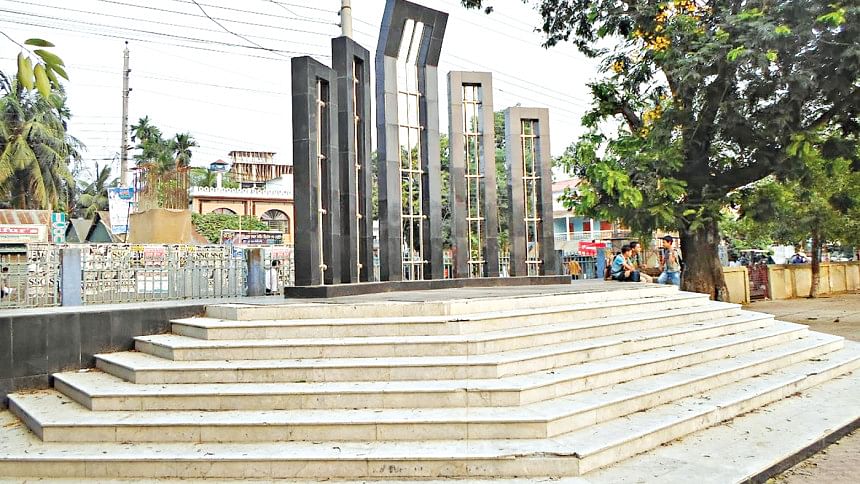10th grader takes down Pakistan flag

This year marks the 73rd anniversary of the 1952 Language Movement. Drawing on research based on various published books, this 21-part series tells the story of the historic struggle for our mother tongue.
Since the British rule, Brahmanbaria had been regarded as the cultural hub of East Bengal. So, it was no surprise that when the news of the language movement reached the district, Brahmanbaria became heavily involved and played a pivotal role.
According to Ahmed Rafique's "Bhasha Andolon Teknaf theke Tentulia", the movement in Brahmanbaria actually began in 1947, when, on December 21, a meeting of the Primary Teachers' Association of Sarail Police Station proposed that Bangla be made a state language.
In 1948, Mohammad Mohiuddin, Mohammad Faizur Rahman and others played a big hand in propelling the movement throughout throughout the district. However, at that time, the students and locals were not able to fully participate.
In 1952, however, nothing was able to stop everyone's participation, including of the incensed student community, especially after Khwaja Nazimuddin's January 27 announcement of Urdu being the state language of Pakistan.
Ahead of the central day of the movement on February 21, widespread campaigns were launched across the district. Key figures such as politician Niyaz Mohammad, schoolteacher Mohammad Musa, Abdur Rahman Khan, Rafiqul Islam, AKM Rafiqul Hossain, Tajul Islam, and others were instrumental in pushing the movement forward.
As noted in "Bhasha Andolon er Ancholik Itihash" by Dr Abu Mohammad Delowar Hossain, Brahmanbaria observed a complete hartal on February 21, as per the pre-planned programme.
Around 1:00pm, a grand procession of approximately 4,000 students from various educational institutions paraded through the district town and gathered at Loknath Maidan in the city.
During this time, a 10th-grader Samiul Ahmed climbed the Court Building and took down the Pakistan flag.
Around 2:00am, a train heading toward Chattogram made a stop in Brahmanbaria, where passengers informed the locals about the students who had been killed in police firing in Dhaka.
The following morning, the streets of Brahmanbaria were filled with protesters from all walks of life.
Student leader Matiur Rahman was appointed as the convener of the student-formed Bhasha Andolon Parishad. Other key members included Mohiuddin Ahmed, Samiul Ahmed, Khan Fatik, Lutfor Rahman, Abdur Rahman, Shafiuddin Ahmed, Sagir Ahmed Khan, Zia Uddin, and others.
On February 24, students from Daudpur High School in Bijoynagar organised a procession and a student rally. The next day, a day-long strike was enforced in Akhaura.
On February 26, members of the Brahmanbaria Bar Association called on the High Court judges to conduct a fair investigation into the student killings by police.
Meanwhile, poet Al Mahmud, Mohammad Musa, Tajul Islam, and several other students published a leaflet from the Jubilee Press. Upon its release, an arrest warrant was issued for Al Mahmud, and the press was subsequently sealed off.

 For all latest news, follow The Daily Star's Google News channel.
For all latest news, follow The Daily Star's Google News channel. 



Comments